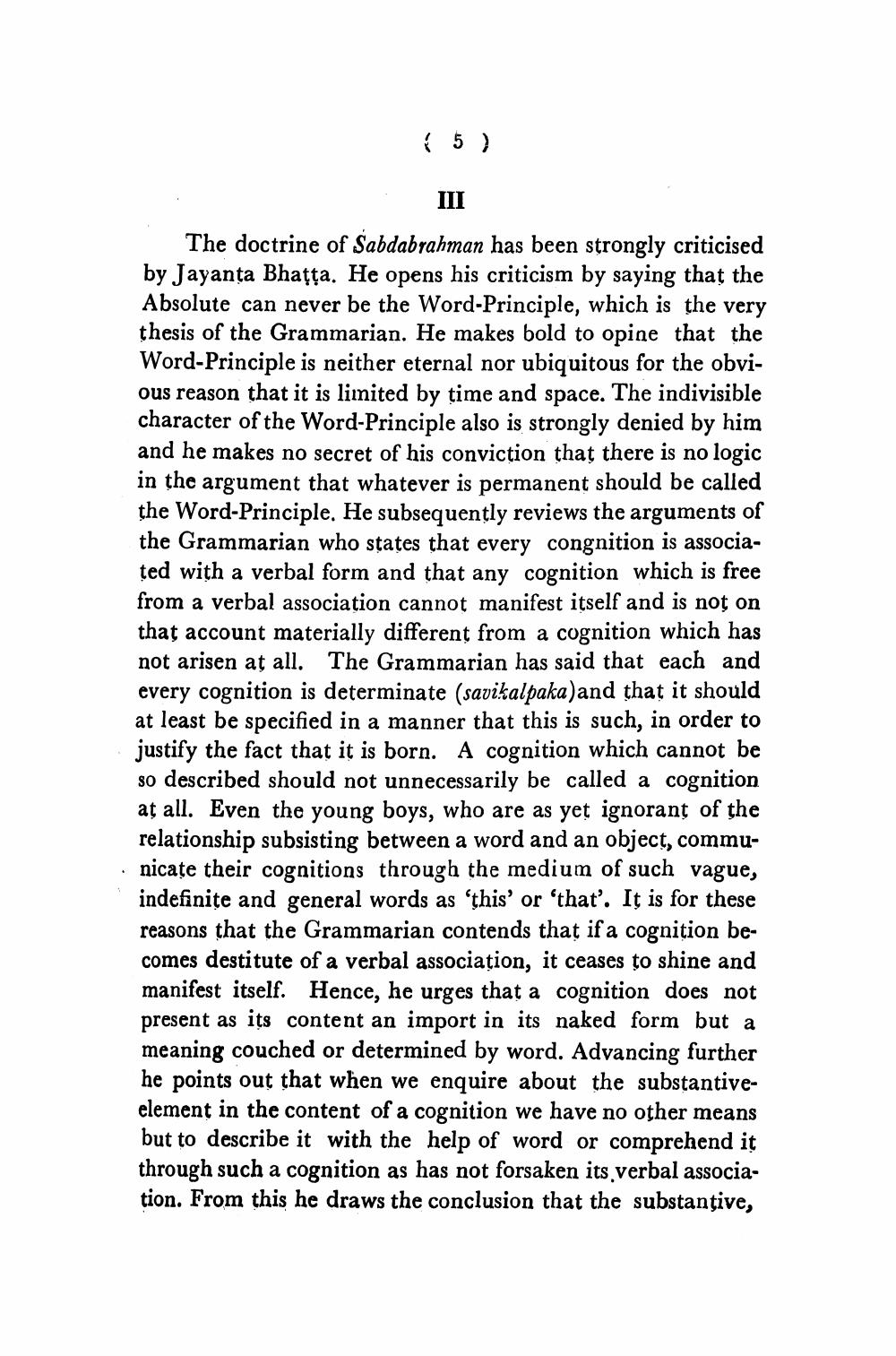________________
( 5 )
III
The doctrine of Sabdabrahman has been strongly criticised by Jayanta Bhatta. He opens his criticism by saying that the Absolute can never be the Word-Principle, which is the very thesis of the Grammarian. He makes bold to opine that the Word-Principle is neither eternal nor ubiquitous for the obvious reason that it is liınited by time and space. The indivisible character of the Word-Principle also is strongly denied by him and he makes no secret of his conviction that there is no logic in the argument that whatever is permanent should be called the Word-Principle. He subsequently reviews the arguments of the Grammarian who states that every congnition is associated with a verbal form and that any cognition which is free from a verbal association cannot manifest itself and is not on that account materially different from a cognition which has not arisen at all. The Grammarian has said that each and every cognition is determinate (savikalpaka)and that it should at least be specified in a manner that this is such, in order to justify the fact that it is born. A cognition which cannot be so described should not unnecessarily be called a cognition at all. Even the young boys, who are as yet ignorant of the relationship subsisting between a word and an object, communicate their cognitions through the medium of such vague, indefinite and general words as 'this' or 'that. It is for these reasons that the Grammarian contends that if a cognition becomes destitute of a verbal association, it ceases to shine and manifest itself. Hence, he urges that a cognition does not present as its content an import in its naked form but a meaning couched or determined by word. Advancing further he points out that when we enquire about the substantiveelement in the content of a cognition we have no other means but to describe it with the help of word or comprehend it through such a cognition as has not forsaken its verbal association. From this he draws the conclusion that the substantive,




